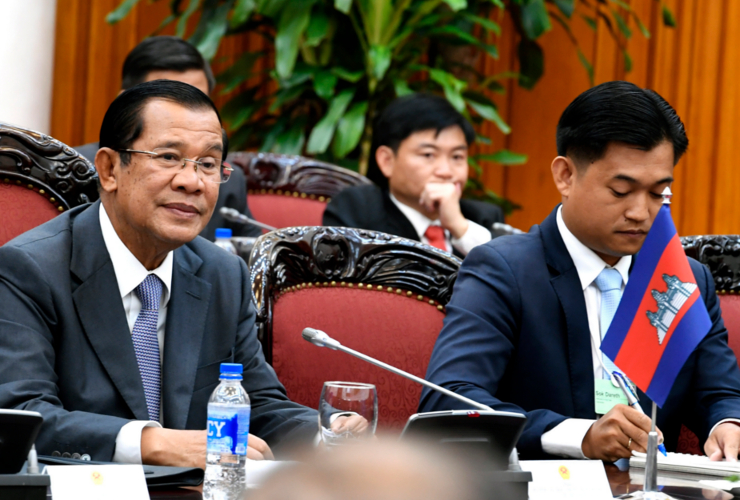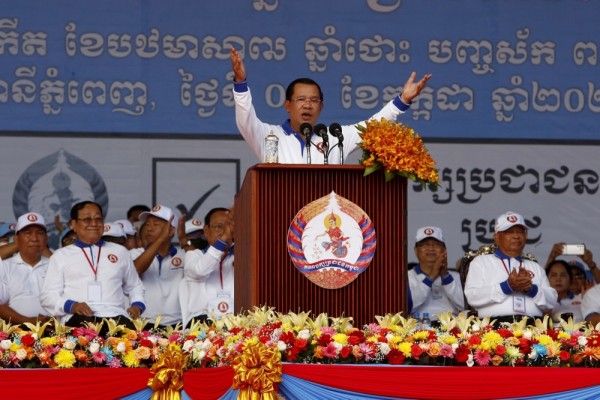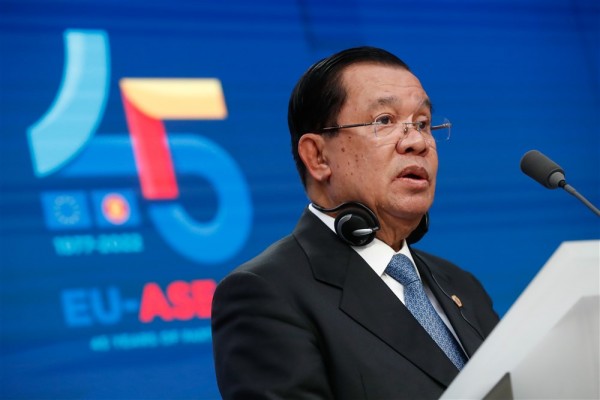Two years after their arrest in Cambodia on groundless esiponage-related charges, former Radio Free Asia (RFA) journalists Uon Chhin and Yeang Sothearin remain on trial in a case that has been repeatedly delayed, in part due to lack of evidence, leaving the pair in legal limbo and a state of constant uncertainty about their future.
To mark the anniversary, the International Press Institute (IPI), a global network of editors, media executives and leading journalists for press freedom, renewed its call on Cambodian authorities to immediately drop all charges against both journalists and to allow them to return to their profession.
“It is outrageous that two years after their arrest these two journalists remain at the mercy of the Cambodian judicial system for crimes they never committed”, IPI Director of Advocacy Ravi R. Prasad said. “Both have been caught up in a brutal crackdown against critical media and used as pawns in the government’s attack on foreign media in the country.”
He added: “The Cambodian authorities have repeatedly failed to produce evidence to back up their groundless claims. We call on them to end this sham trial by releasing both journalists immediately and reversing their widespread assault on media freedom.”
Background
Chhin and Sothearin was arrested on November 14, 2017 and held in detention for nine months before being released on bail in August 2018. In March 2019, authorities formally charged both journalists with espionage under article 445 of Cambodia’s criminal code and sent the case to trial.
Prosecutors accused the journalists of undermining national security and “illegally collecting information for a foreign source”, charges that carry a prison sentence of up to 16 years.
The accusations relate to the journalist’s work for RFA, an U.S. Congress-funded independent news service known for its critical coverage of the Cambodian government.
The broadcaster was forced to shut its Phnom Penh bureau and halt its operations inside the country in September 2017 during a country-wide crackdown on foreign media.
After the closure, the Cambodian ministries of Information and Interior warned that any journalists still working for RFA would from then on be treated as spies.
Chhin and Sothearin, both Cambodian nationals, were arrested two months later, in November 2017. Much of their equipment, including laptops, was confiscated and investigated. Prosecutors alleged that they had continued to file reports and send information from within the country to RFA via a broadcast studio they had set up, charges they deny.
After months of delays, a court ruling was expected on October 3, 2019. However, a judge in Phnom Penh ruled that the investigation was insufficient given that there “wasn’t enough evidence to prove, or an expert to verify, that the equipment was used to commit a crime.” But rather than dismiss the case, he sent it for further investigation.
During the trial, both Chhin and Sothearin have spoken openly about how the legal uncertainty has had serious effect on themselves, and their families. The bail conditions mean they have been barred them from changing their addresses, had to hand over their passports, and are required to visit the police station each month.
Wider crackdown
The arrests were part of a wider crackdown of dissenting voices in the country ahead of the July 2018 general election, in which Hun Sen’s Cambodia People’s Party won a landslide victory.
The crackdown saw the English-language newspaper Cambodia Daily forced to close after being hit with a disputed tax bill of over $6 million. After the newspaper’s closure, its website was arbitrarily blocked.
During that time several other independent media outlets and radio stations were banned within the country, including U.S.-funded Voice of America and dozens of Khmer-language stations that aired news reports critical of the prime minister.
In May 2018 the last major independent media outlet in the country, the Phnom Penh Post, was sold to a Malaysian investor with links to the regime, leaving pro-government outlets dominating the local language media and television channels.
In recent months, the Cambodian government has further tightened the noose on independent media by enforcing strict rules on so-called “fake news”.



